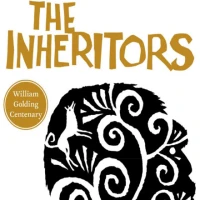Diving Belles, by Lucy Wood
I took a bit of convincing to read this one. It’s a series of short stories that take Cornish folklore and place it into a contemporary setting: a woman transforming into a standing stone; a wife whose husband was kidnapped by mermaids; giants and ghosts and spirits. It all sounded a bit urban fantasy to me – a genre I’ve never taken to.
Diving Belles though is a superb short story collection; genuinely original and exciting. It’s warm and well written and firmly rooted in a very physical sense of place. Wood has subsequently written a novel, Weathering, and I’ll absolutely be picking it up once I’ve finished my #TBR20.
The title story here gives a good sense of how the collection works. Iris’s sailor husband was lost decades ago, enchanted away by mermaids. Now a woman in her village has set up a business that can reunite wives for a while with their stolen husbands, perhaps even bringing them back to land. It involves lowering the wife down to sea in a diving bell, and a friend has bought Iris a voucher entitling her to three attempts.
It sounds twee, or it did to me anyway, but it isn’t. Instead, it’s a wonderful mix of the pragmatic and the mythic. Mermaids and gift vouchers. Of course it’s also all terribly metaphorical: when Iris sees her husband he’s not aged a day while she’s now an old woman, just as all those we lose remain forever young in our memories because they can no longer age.
What sells it all is the prose:
Closer to the seabed, the water seemed to clear. Then, suddenly, there was the shipwreck, looming upwards like an unlit bonfire, all splints and beams and slumped funnels. The rusting mainframe arched and jutted. Collapsed sheets of iron were strewn across the sand. The diving bell moved between girders and cables before stopping just above the engine. The Queen Mary’s sign, corroded and nibbled, gazed up at Iris. Empty cupboards were scattered to her left. The cargo ship had been transporting train carriages and they were lying all over the seabed, marooned and broken, like bodies that had been weighed down with stones and buried at sea. Orange rust bloomed all over them. Green and purple seaweed drifted out through the windows. Red man’s fingers and dead man’s fingers pushed up from the wheel arches.
Diving Belles is a strong opener to the collection, and it’s immediately followed by Countless Stones which is just as solid. Here Rita has woken up to find that she’s transforming into a standing stone, as has happened to her before and as happens to others from time to time in her part of the country.
Rita knows she has a few hours before the transformation is complete, but she doesn’t know how long she’ll stay transformed for. She therefore prepares to make arrangements: to contact work to let them know she’ll be absent; to empty the fridge of perishables; to make sure she hasn’t left any washing up on the side. As she does so the particularities of transformation are closely described: the feeling of her toe joints hardening; a craving for salt; visions of the other stones she’ll stand among:
Rita filled up the kettle and put it on. There was a cold breeze from nowhere and suddenly she was up on the cliffs with the other standing stones, watching a buzzard rising and circling on its huge spread of wings. Then she was back in front of the kettle again and it had boiled.
Unfortunately, before she can make much by way of preparation Rita gets a call from her ex who needs her help driving him to a house he’s viewing. She dutifully heads out to take care of him even though she knows the weather is worsening and the detour will mean she’ll have to leave some of her own tasks undone.
Again, the metaphor isn’t particularly subtle. Rita is fixed in place, literally unable to move either from her place by the cliffs post-transformation or her relationship with her ex. The story works though because while on the symbolic level it’s pretty straightforward the prose makes it convincingly real. Rita’s particular problem may be magical in nature, but there’s nothing supernatural about a woman who puts someone else’s needs ahead of her own even when her own are more pressing.
Each of the stories combines elements of the prosaic and the fantastic, commingling them so that the extraordinary becomes more a highlighting of the ordinary than something separate to it:
- an adolescent boy feels awkward about his body, as I once did myself, but here it’s because his father was a giant and he’s still short (he looks up his concerns on the NHS website);
- a woman unable to let go of her past finds the ghost of a wrecker (the Cornish equivalent of this) in her spare bedroom rifling through her unopened moving boxes, assessing them for salvage value;
- a woman tries on an eye-cream in her mother’s bathroom, and through its magic realises that her mother isn’t the lonely old lady she thought she was but has a faerie lover and a whole life she was unaware of, separate to her relationship with her daughter.
Not every story is as memorable as those, but most are and I could easily keep picking examples (the old folk’s home for retired witches springs to mind, a more melancholy tale than it at first appears). Another standout that I can’t resist mentioning is Notes from the House Spirits, where nature spirits inhabiting a house consider its various occupants over the years, the humans they don’t understand and can’t really tell apart. It’s a melancholic tale with the reader able to fill in the gaps the spirits can’t, and with the occasional wry stab of humour:
When she can’t find her watch, we find it for her, and put it in the pocket of her coat, but then she shouts that she has already looked in the pocket of her coat. We were only trying to help. It is not our job to find things.
Diving Belles is like little else I’ve read this year, or indeed any year. It stands an excellent chance of being on my end-of-year roundup list, and I can easily imagine returning in future to read it again. For me, this is a future classic, and one we’re lucky enough to get to read while it’s fresh.
Other reviews
David Hebblethwaite first put me on to this one, his blog post about it is here and links to a review he did for Strange Horizons here. Gemma of The Perfectionist Pen also wrote an excellent review of it here.













I love it when a book takes you by surprise and ends up being something unexpected. Sounds like this is one to look out for!
As I live in Cornwall I like the sound of this. Must add it to the (ever-growing) list…Thanks for the interesting review
Excellent review, and the excerpts do a great job of selling it – “unlit bonfire”, what a perfect bit of imagery there. I will definitely get one, thanks.
Me too Kaggsy. It is very good.
Simon, if you live in Cornwall it’s a bit of a must read. I’d love to see a review by you of it.
Lee, thanks. The prose is very well done. Normally I’d ding a book more for the metaphors (allegories really) being so obvious, but actually who wants to play hunt the symbol every time? Besides, it works, and it’s a beautifully evocative book.
I decided to add this one to my “to read” list.
I love that first quote, Max; it’s so evocative. Are there similarities between Lucy Wood’s stories and Amy Sackville’s Orkney, do you think? The prose style and/or themes, for example? I still need to get to Orkney (it’s on the shelf) but if I like it, then Diving Belles could be next.
I feel a bit bad because I’m only skimming this review as well. While it’s not ony my 20 under 200 list, it’s high up on my TBR pile.
I read the beginning though and love what you wrote about the mix of mythic and pragmatic.
Lorinda, that’s great, I think you’ll like the mythic elements.
Jacqui, interesting question. These stories are more concrete than Orkney, more solid, Orkney is much hard to grasp and perhaps more fragile. Diving Belles is a spirit born of the earth or the deep waters, Orkney is a spirit born of sea-foam and spray, if that makes any sense at all.
Caroline, not to worry, I do the same when I’m planning to read a book soon. I’ll be fascinated to read your thoughts when you do read it.
Yes, it does make sense, thanks Max. It was your description of the Diving Belles story that made me think of Orkney. I’ll see how I get on with it.
Max: I read the review and thought of Jeanette Winterson. What do you make of the comparison?
It’s a fascinating one Guy. Wood is much more matter of fact than Winterson. Winterson writes fables, or stories I guess, without much interest in accuracy or whether they’re credible in a realist sense. Wood actually feels deeply realist, yet the content is fantastical. Both though do use the fantastic to illuminate the prosaic, which is a commonality I hadn’t thought of.
I’m really pleased to read your positive review as this is not a writer I had any plans to read but she is one I will be seeing at the Edinburgh Book Festival as she’s sharing the bill with Sarah Hall. Now I’m much more interested in reading her!
So glad you enjoyed this collection Max, and thank you for your kind words and linking to my review 🙂 I think what I loved most about the collection, apart from Wood’s prose, was that mix of reality and the fantastical/mythical – it just works so well! I’ve since read Weathering and I think you’d enjoy it 🙂
1st, interesting lineup. Ask some difficult questions! I don’t know what they should be, but difficult.
Gemma, absolutely, it really does work well. Glad to hear Weathering is good too.
This sounds wonderful (and is praised by Jon McGregor, whose work I really admire).
It’s a shoo-in for my end of year round up. I think you’d like it and I’d love to see your thoughts on it.
Pingback: Reflections on a reading year | Pechorin's Journal
Pingback: June ‘23 roundup | Pechorin's Journal